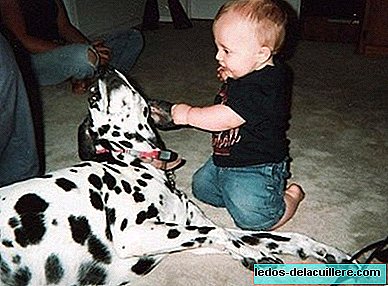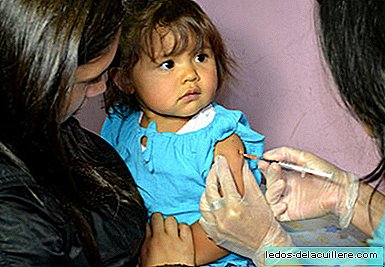
Eczema is a skin disorder that consists of itchy and scaly rashes, very common in babies. Young children with a family history of allergies would be less likely to suffer from eczema if they live with a dog since childhood.
Instead, a cat would raise that risk, although only in children with feline allergen sensitivity. Although the results are not confirmed, according to their authors, it is not about recommending the presence or absence of animals at home with young children, as there is a complex relationship between the family pet and children's health.
And above all I think that it is a very personal question to want or not to live with animals in the family home. In the case of families that have pets, there may be cases of separation of animals when it is found that children have an allergy.
Therefore, this and other questions must always be asked before an animal enters the house, which on the other hand can be very beneficial for children.
But back to research, published in "Journal of Pediatrics"It included 636 children who, from a very young age, participated in a long-term study on environmental exposure and allergy risk. In all, the father or mother had had asthma, nasal allergies or eczema.
When the children were less than one year old, the team visited their homes and collected dust samples. The authors made annual exams to assess whether they were sensitive to several allergens, that is, if substances such as a pet's hair or moisture cause the body to produce antibodies.
The team found that 14% of children had eczema at four years. But this rate fell to 9% in the 184 children who lived with a dog since childhood.
Among children sensitive to canine allergen, having a dog at home was associated with a decreased risk of developing eczema: of the 14 children with those two requirements, two had eczema, compared to 17 of the 30 children sensitive to canine hair but who had not lived with a dog since childhood.
The study authors suggest that early exposure to canine allergen (substances in the hair, saliva and urine of pets) would affect the development of the children's immune system so that it would inhibit eczema, generating tolerance.
As for cats, the observation was more complex. There was no relationship between the presence of a cat in the home in childhood and the risk of eczema, but children sensitive to cat hair developed allergies less frequently if they had not lived with felines.
In any case, there is certain relationship between living with dogs and cats and the risk of developing eczema in childhood, so we must take special care if children have a history of allergies and keep them in the cleanest possible environment, including pets.












